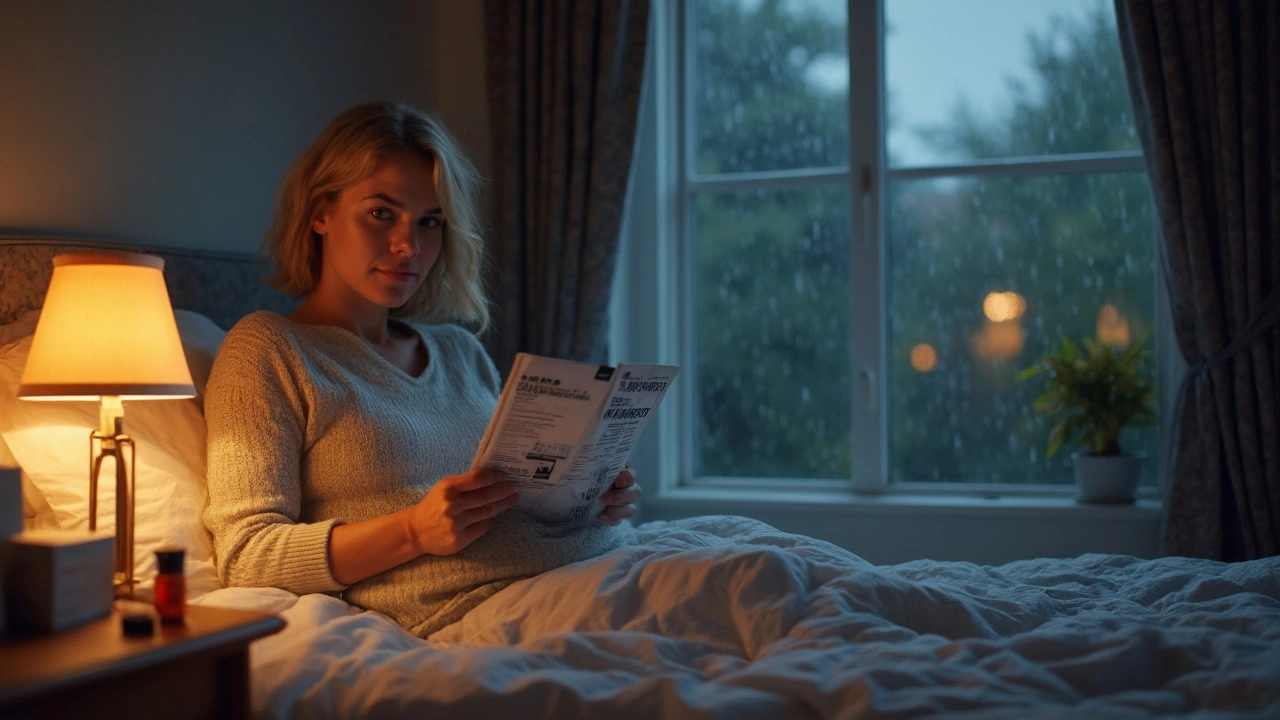Zolpidem Alternatives: Safer Options for Better Sleep
If zolpidem (Ambien) has stopped working, causes morning grogginess, or worries you because of dependence, you’ve got options. You don’t have to rely on one pill forever. Below are clear, practical alternatives—both drug and non‑drug—plus simple tips you can try right away.
Prescription alternatives to discuss with your doctor
Zolpidem is a sedative-hypnotic. Other prescription options work differently and may suit you better depending on your sleep problem:
- Zaleplon: Fast-acting and short-lived. Good if you have trouble falling asleep but wake up early less often causes next-day drowsiness.
- Eszopiclone (Lunesta): Longer effect than zaleplon, useful when you have trouble staying asleep. Some people notice mild morning fog at higher doses.
- Ramelteon: Works on melatonin receptors. Non-habit forming and helpful if your main issue is falling asleep rather than staying asleep.
- Doxepin (low dose) and trazodone: Older drugs used off-label for sleep. They can help with maintenance insomnia but come with side effects like dry mouth or daytime sleepiness for some people.
- Suvorexant (orexin antagonist): A newer class that helps reduce wakefulness. It may be an option if other treatments fail, but discuss interactions and cost with your clinician.
Always check interactions with other meds and avoid mixing sedatives with alcohol. Your prescriber can help choose the right one based on your health, age, and sleep pattern.
Non-drug options and practical tips that actually work
Cognitive Behavioral Therapy for Insomnia (CBT-I) is the top long-term solution. It teaches habits and thinking patterns that fix sleep without pills. Clinical trials show CBT-I often beats drugs for lasting results. You can find trained therapists or online CBT-I programs.
Simple sleep-hygiene moves make a big difference: keep a consistent bedtime, stop caffeine by mid-afternoon, dim lights an hour before bed, and keep your bedroom cool and dark. Use the bed only for sleep and sex—no working or scrolling in bed.
Try short-term aids if you need something now: low-dose melatonin (0.3–3 mg) can help reset your sleep time, especially for jet lag or shift work. Magnesium or valerian have mixed evidence; they help some people but aren’t guaranteed. Over-the-counter antihistamines (diphenhydramine) often cause next-day grogginess and tolerance, so use them cautiously.
If you’re stopping zolpidem, avoid quitting cold turkey. Taper slowly under medical supervision to reduce rebound insomnia and withdrawal. Track your sleep (times and quality) for a week before your appointment—data helps your clinician tailor a plan.
Which path is best? If you want short-term relief, a different prescription may work. If you want lasting change, try CBT-I plus strict sleep habits. Talk with your doctor about risks and which option fits your life. Small, consistent steps often beat quick fixes when it comes to real sleep improvement.
- April 16, 2025
- Comments 6
- Medications and Supplements

